Disney Princesses at the OBGYN Is so Surreal, It's Actually Incredible

By:
There have been a lot of images of Disney princesses floating around internet lately. They've been re-imagined as sexy pin-up girls, or drawn breastfeeding in public. This January, in honor of Cervical Cancer Awareness Month, the Disney princesses are making a stop by the gynecologist's office.
Writer and sex education speaker Danielle Sepulveres collaborated with artist Maritza Lugo to create a series of cartoons showing the Disney princesses as proactive women taking care of their reproductive health.
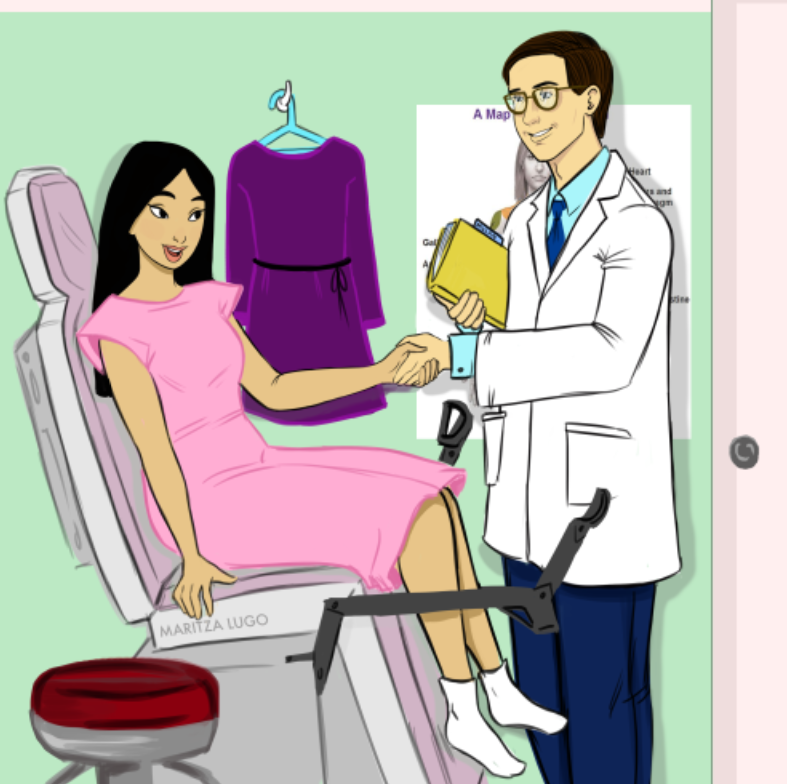 Tumblr/Maritza Lugo - tumblr.com
Tumblr/Maritza Lugo - tumblr.com
(Above: Mulan checks in with her OBGYN for her annual cervical cancer screening, which can include a Pap Smear and/or HPV test.)
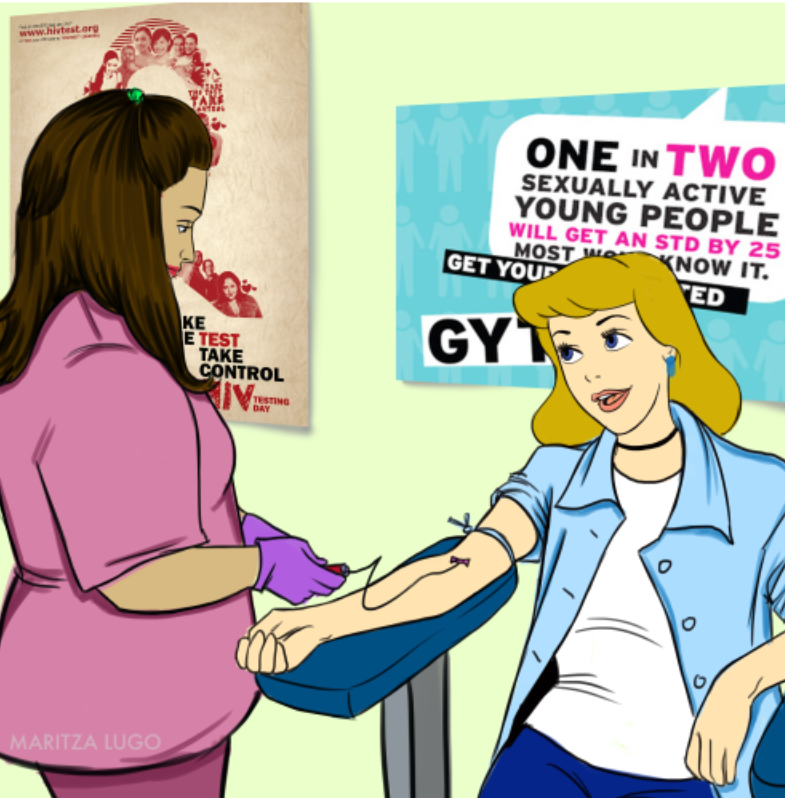 Tumblr/Maritza Lugo - tumblr.com
Tumblr/Maritza Lugo - tumblr.com
(Above: Cinderella gets her blood drawn for a STD test.)
For Sepulveres the drawings were a perfect way to shine light on a not so talked about subject, HPV and cervical cancer. Sepulveres told the Huffington Post that she was "fed up with the little the media coverage cervical cancer was getting." Sepulveres also pointed this out out in a post on Tumblr.
Related: Planned Parenthood: Not Just For Women
"January is Cervical Cancer Awareness Month," Sepulveres said in a post on Tumblr. "And the majority of cervical cancer incidences are directly related to the HPV virus. Sadly you will barely read about any of this. Instead you’ll hear about National High Five Day or National Cupcake Day (both actual things)."
Sepulveres has a point. As ATTN: previously reported, HPV causes virtually all forms of cervical cancer and affects as many as 69 percent of Americans — equivalent to 220 million people. It is the most common sexually transmitted infection in the U.S., and it is a virus that experts say 80 percent of population is likely to get at some point in their lives. Although many people have HPV, not many people know they have it nor are they willing to talk about it.
Often the lack of education about the virus and the shame associated with HPV prevents people — especially women — from opening up. Since HPV is the number one sexually transmitted infection, disclosing you have the virus can carry a "connotation of promiscuity and irresponsibility."
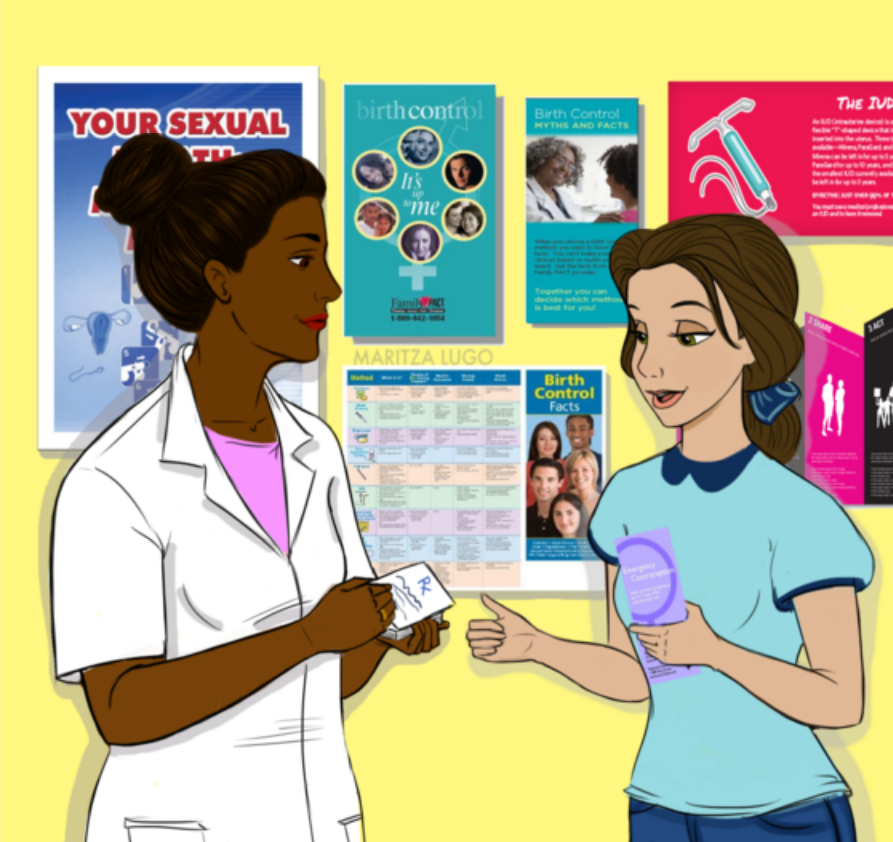 Tumblr/Maritza Lugo - tumblr.com
Tumblr/Maritza Lugo - tumblr.com
(Above: Disney's Beauty and the Beast princess Belle picks up some information about contraception.)
Part of this shame may come from the double standard women face in having multiple sex partners, something that model Amber Rose addressed last year when she and thousands of others participated in her SlutShameLA event to challenge sexist views on promiscuity.
“There is a stigma attached to HPV and cervical cancer, and the media plays a part in perpetuating it,” Sepulveres told Forbes. “I want women to know that even though they don’t have a celebrity ambassador, they don’t need to be embarrassed and they don’t need to feel ashamed.”
Related: Amber Rose Just Took a Major Stand Against Slut Shaming
However, it is worth noting that there are vaccines to prevent HPV. As far as cervical cancer, one of the most effective ways to treating cervical cancer is to prevent it. According to American Cancer Society, cervical cancer was once the most common cause of cancer death for American women. But thanks to the increase of frequent screenings the cervical cancer death rate has gone down by more than 50 percent. These screenings can detect changes in the cervix and signs of HPV — which is directly linked to cervical cancer.
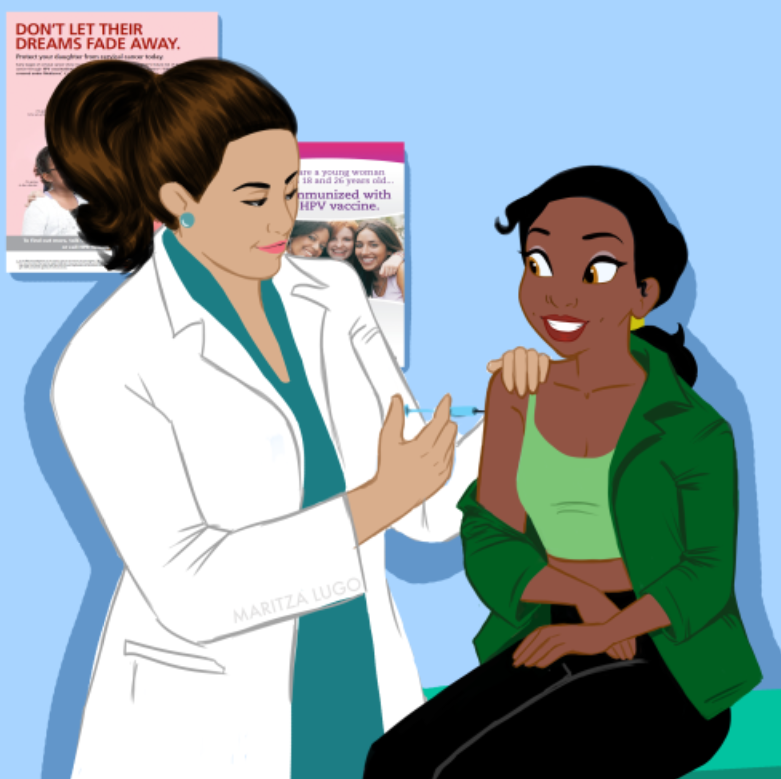 Tumblr/Maritza Lugo - tumblr.com
Tumblr/Maritza Lugo - tumblr.com
(Above: Disney princess Tiana from "Princess and the Frog" gets the HPV vaccination.)
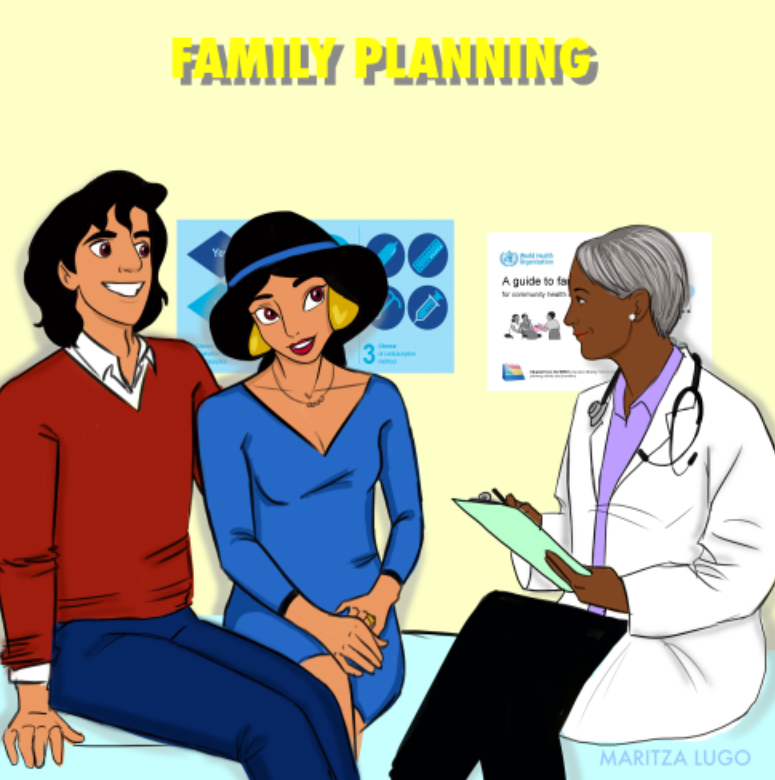 Tumblr/Maritza Lugo - tumblr.com
Tumblr/Maritza Lugo - tumblr.com
(Above: Princess Jasmine stops by the doctor with Aladdin to discuss starting a family.)
According to the American Cancer Society, in 2015 an estimated 12,900 new cases of cervical cancer were thought to be diagnosed.
